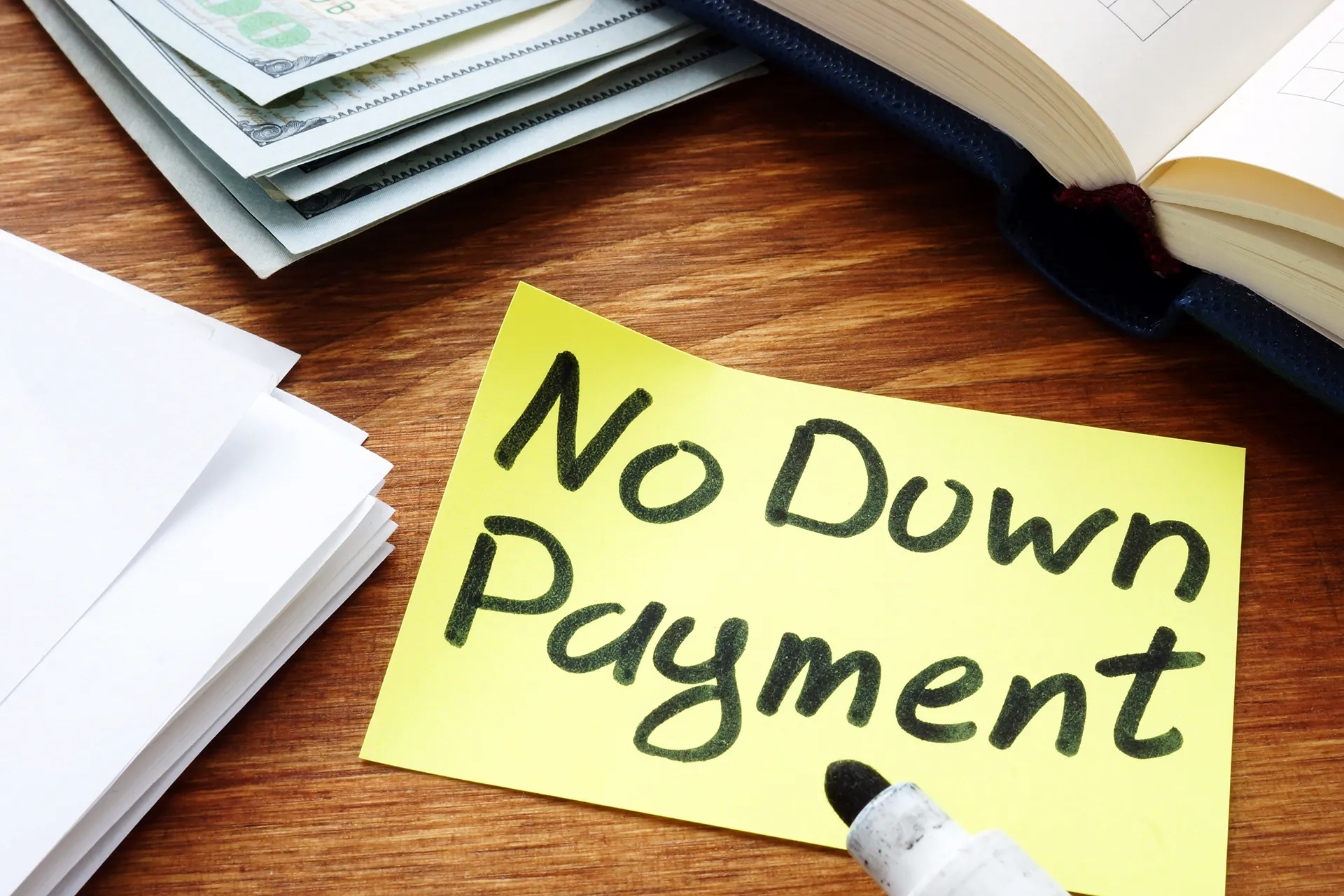Did you know that it is possible to buy a house with no money out of pocket? It’s true. Unquestionably, homeowners take better care of their neighborhoods and homes than most renters do; as a result, our towns and communities become safer and more appealing for us all. For this reason, the government and non-profit agencies nationwide work tirelessly to make the dream of homeownership possible for Americans. Specifically, most single-family and lower-income households cannot wait ten years to save up the down payment for a new home. For this reason, non-profit agencies, the Federal government, State agencies, and mortgage lenders have grants and loans to support first-time buyers.
Let’s dive in and show you how to buy a house with no money down.
How do Down Payment Assistance Programs (DPI) and Grants help me buy a house with no money down?
Down payment assistance (DPA) varies by state. Each state has its own programs to provide homeownership opportunities for borrowers that meet the criteria of state and federal non-profit programs. Programs funded by grants and DPI offer loan options with zero-money out-of-pocket for down payments and closing costs. In most cases, a diligent borrower teamed with an experienced lender can finance a house with no money down. Given these points, here’s what you need to know about the process.
Who is eligible for DPA and Grants?
Down payment assistance programs and Grants are often coupled with income requirements, credit history, and credit score minimums. Both assistance programs are typically reserved for middle and low-income, single-family households and first-time home buyers. Often, lenders and banking institutions backing your loan will require you to take mortgage education courses to ensure you understand the importance of payments being made, their timeliness, and your commitment to your loan.
One important factor to consider is that in order to qualify for a grant or DPA, you may not own an investment or rental property, even if you live in it.
You can apply for a no-closing-cost mortgage. Be advised that these come with high-interest rates.
What types of DPA are available?
0% Interest Forgivable Loans: These forgivable loans are second mortgages that are usually large enough to cover your entire down payment. The caveat is that there are restrictions put in place that restrict you from moving or refinancing for a certain number of years. The average time frame can range from 5-20 years, depending on which DPA option you qualify for. Once you reach that timeframe, the loan is forgiven completely. If you choose to move beforehand, the entire loan will have to be repaid in full.
Grants: Simply put, a grant is the most optimal form of down payment assistance. The best part is that these are completely forgiven and considered a “gift.” Your monthly payment will be the same as if you provided the down payment personally. When considering a grant, please be sure to read all of the fine print and consult an experienced lender. Watch out for “silent” second mortgages and hidden liens.
Deferred Down-Payment Loans with 0% interest: In this case, deferred-payment loans basically postpone the down payment until you change your loan or sell the property. These loans are not forgiven; they are just delayed. The delay’s benefit is that you will often have substantial equity built in the home, and the money will simply be deducted from your profit when you refinance or sell.
Low-Interest Loans: In a nutshell, this is a second mortgage loan that sits alongside your primary loan. You will pay two monthly mortgage payments. It is advisable to reach out to a mortgage broker or experienced lender before deciding on the type of loan since many of these second loans have options for extremely low interest and, in some cases, no interest at all.
Let’s talk about credit.
In order to qualify for most no-down payment mortgages, you need to pay close attention to your credit score because bad credit scores result in higher interest rates and loan rejections. Home buying isn’t just about the home purchase price and your monthly mortgage payment. By and large, your credit score, work history, and debt-to-income ratio will dictate your interest rate and, ultimately, your eligibility for DPA.
In order to qualify for DPA and Grants, you will need to meet a minimum credit score requirement of 630.
Debt-to-income ratio(DTI) is the comparison of how much you owe and how much you earn. Your monthly debt cannot exceed 43% of your gross monthly income before taxes.
What’s your median income score?
To break it down, your median income score is another deciding factor to see if you qualify as a low-income homebuyer. The median divides the income distribution of an area into two equal parts: one-half of the cases falling below the median income and one-half above the median. For households and families, the median income is based on the distribution of the total number of households and families, including those with no income. This tool comes in handy to find the median income score of your area.
A few home buyer programs to consider.
Here is a list of some of the most popular low-to-no-down payment loans that many lenders offer to buyers looking to get into homeownership with a minimal personal financial contribution.
Homeownership is the goal for the majority of Americans; for this purpose, the Federal Housing Administration (FHA) was created. Federally backed agencies like Freddie Mac and Fannie Mae provide millions of home loans to help citizens fulfill the American dream. Here are a couple of loan programs for low-down payment mortgages.
Freddie Mac Home Possible loans are specifically targeted at lower-income buyers. Combining a Freddie Mac loan and DPA offers financing with lower upfront fees than many other mortgage options.
Fannie Mae Homeready loans are a type of loan that is designed for today’s credit-worthy low-income borrowers. In fact, you can get this mortgage loan for as little as 3% down, and with many of the DPA opportunities, Fannie Mae loans might be the perfect solution.
FHA Loans, overall, require lower minimum down payment requirements and are more lenient on credit score requirements. Those with good credit can get into an FHA loan with a down payment amount as low as 3.5%. Borrowers with higher credit scores need less money upfront. It should be noted that most FHA loans and any government-backed loan will typically require monthly mortgage insurance premium payments.
Can I use DPA and a conventional loan?
In short, the answer is yes! No matter what type of financing you choose, community programs offering grants and government agencies are here to help struggling Americans get into their first home. Conventional mortgages are no different. In fact, conventional mortgages have some advantages since they typically have lower property restrictions and standards.
Remember that most conventional loans will require private mortgage insurance (PMI). That said, FHA loans also have insurance premiums attached.
How to buy a house with no money with VA Loan Programs.
To qualify for a zero-down mortgage program offered by the Department of Veteran Affairs, service members must meet requirements and obtain a Certificate of Eligibility (COE). Keep in mind that some VA loans have a 2.3% funding fee attached to no-money-down mortgages, so keep an eye out for that.
What is a certificate of eligibility?
A certificate of eligibility (COE) is required to qualify for a VHA loan. The requirements for a COE are 90 consecutive days of service during wartime. 181 days of active service during peacetime, 6 years in the National Guard or reserves, or 90 days under Title 32 orders (30 days consecutively.) Lastly, if you are a surviving spouse of a veteran who died as an active-duty service member.
A few refinancing options for service members are streamlined and cash-out loans. Both of these loans offer zero-down payment options, and in many cases, there will be no closing cost out of pocket since closing costs can be rolled into the loan. Streamlined refinancing works when interest rates are lower than the loan origination mortgage rate. Streamlined loans reduce monthly mortgage costs. Secondly, cash-out loans provide equity cash-out funds to Veteran homeowners that have gained equity above the original purchase price and remaining loan amount.
How to Buy a House With No Money Down using U.S. Department of Agriculture (USDA) Loans:
USDA loans are an option for home purchases made in lower-developed agriculturally-focused rural areas. In many cases, real estate prices are lower, and many sellers cannot find buyers that even come close to their asking sales price due to the sparsity of population and popularity of the area.
Can a mortgage lender show you how to buy a house with no money down?
Finding a trustworthy mortgage lender who will guide you through the process is crucial. You want to find a lender that is diligent in getting you competitive mortgage rates and someone with experience.
Your home plays a significant role in financial security. So, regarding your mortgage loan, you want to be sure you’re making responsible decisions. Undoubtedly, the loan process invokes insecurity in many people. In particular, navigating through a sea of paperwork and financial jargon can be unsettling without honest guidance. In fact, a lack of clarity can lead you down the wrong path and compromise your financial future.
Mortgage Insiders has helped thousands of families reach their goals to create stronger financial futures. You deserve to work with a lender who brings clarity and has your best interest at heart. Whether you’re looking to purchase a home, help with refinancing, lower interest rates, or specifically ensure that you have made the best decision for the life of your loan.
3 Simple Steps:
- Schedule a Call: An experienced loan officer can discuss your needs and guide you through the possibilities.
- Get Approved: We’ll help you through the application process and facilitate the steps for approval.
- Exhale: Put your feet up and feel secure knowing you made the best decisions about your home loan.
With proper guidance, you can get your first home, accommodate your growing family, and start that renovation project—whatever goal is on the horizon. An alliance with Mortgage Insiders will give you the confidence to know that your mortgage loan is setting you up for financial success. Mortgage Insiders offers today’s latest financial news and mortgage trends. Subscribe to our the channel for current events.





